Posted February 17, 2026 by Nicky in General / 22 Comments
This week’s theme for Top Ten Tuesday is books for armchair travellers, and my take on that is probably idiosyncratic… but here we go.
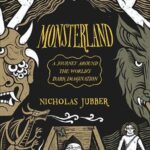

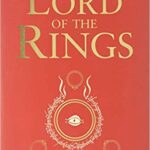
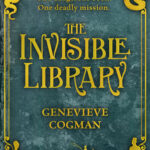
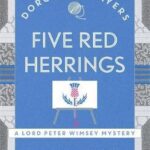
- Monsterland: A Journey Around the World’s Dark Imagination, by Nicholas Jubber. I actually just finished reading this last night, so it jumped to mind. Each chapter starts with a short retelling of a monster story, and then Jubber explores various landscapes that have housed the monsters, participating in local festivities, peeping at the dark places in our imagination. Sometimes it feels a liiiittle bit… white tourist gawking at the locals, but it’s still interesting. This is probably the book on my list that best fits the theme, and I didn’t personally love it, but I can see why other people would.
- The Gabriel Hounds, by Mary Stewart. I would’ve picked my favourite Stewart, Madam, Will You Talk? — and it’s definitely hard to choose with Stewart’s work, because she’s great at evoking a sense of place — but I think the landscape and setting of The Gabriel Hounds stuck with me most of all, perhaps because it was one of the first of her books I read. The heat, the dusty roads, the dilapidated rooms of the palace of Dar Ibrahim, it all feels very real.
- The Lord of the Rings, by J.R.R. Tolkien. Partly prompted by yesterday’s discussion post, of course, but I think I might’ve come up with this one anyway! It’s such a journey, with terrible and wonderful sights. You can even undertake it yourself by doing a Walk to Mordor challenge, if you get tired of the armchair.
- The Invisible Library, by Genevieve Cogman. The whole series, really — want to travel through various fictional worlds, on quests for rare and unique books? An alternate fae-touched Venice, in book two? Irene travels through various different worlds, and I for one loved traveling with her.
- Five Red Herrings, by Dorothy L. Sayers. Fancy some trekking around Scotland? It’s possible, or at least was, to retrace some of the journeys taken by the characters in this classic mystery, and follow the story through the landscape. I can’t imagine the train times are the same anymore, but still…
- A Gentle Noble’s Vacation Recommendation, by Misaki, Momochi & Sando. This manga series features a man from a fantasy world ending up somehow transported to another, different fantasy world — and deciding to make the most of it and have a bit of a holiday. Admittedly the main attraction of the story is his relationship with the friends he makes there, but we also get to see a bit of the world, learn a bit about magic, and see some cool monsters.
- The Long Way to a Small Angry Planet, by Becky Chambers. Space travel more your thing? This first book of the series hops around a bit, visiting a few different planets, though the setting is generally a bit more restricted in later books.
- The Eagle of the Ninth, by Rosemary Sutcliff. How about a trip to the past? A bit of Roman Britain, a trek through Scotland of the same period, and you can practically feel the chilly mist in places.
- Eating to Extinction: The World’s Rarest Foods and Why We Need Them, by Dan Saladino. I’m not actually a foodie myself, but I’m interested in food science and food history, so this was a much-enjoyed read of 2025. By necessity, the story of rare foods and local delicacies at risk of disappearing takes the author’s narrative all over the world.
- A Natural History of Dragons, by Marie Brennan. The whole series is a trek around a slightly-askew version of our world, with many locations and customs clearly based on/inspired by real-world locations, but also with scope for Brennan to imagine alternate histories, alternate mythologies, and, you know, the inclusion of dragons. The first book barely dips a toe in, but the whole series features perilous voyages, desert survival, tropical jungles, dangerous mountains, etc, etc. (And I will say that the author, if not always the narrator, stays aware of the issues of white people “exploring” and “discovering”.)


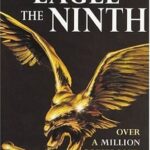

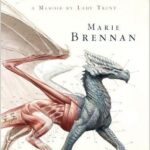
I’m not sure how other people are interpreting the theme, but I think maybe I cheated a little bit by offering travel to the past and to fictional planets… but hey, that’s where I like to “travel” in my books, so there!
Tags: books, Top Ten Tuesday
Posted February 10, 2026 by Nicky in General / 28 Comments
This week’s Top Ten Tuesday post is a Valentine’s themed freebie, so let’s talk about the books I’ve dragged my wife (Lisa) into reading alongside me!
This is not going to be by any means an exhaustive list, because books are one of my love languages, and sharing excitement about books has been a thing we’ve done for over 20 years now — since I was 15. Nor is it a true chart of our relationship through books, because I wouldn’t recommend some of the books we’ve bonded over through the years (like the Rurouni Kenshin manga, the author of which is a paedophile). It’s just ten of the (many) possible books I could choose!
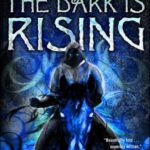
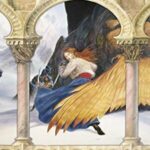
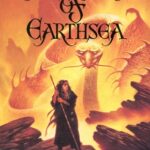
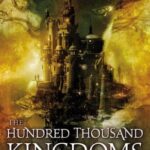
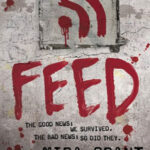
- The Dark is Rising, by Susan Cooper.
The whole sequence, really, and especially The Grey King. The older BBC radioplay version of it (not the recent one) was pretty formative for me, and when I managed to rediscover MP3s of it online in my teens, I ended up rereading the original book, loving it completely, and demanding just about everyone read it too. My now-wife complied, of course, and many’s the conversation we had about the series, imagining what the ending might mean for the characters (does Bran ever remember who he really is?), etc.
- Harpy’s Flight, by Megan Lindholm.
We read quite a few of Robin Hobb/Megan Lindholm’s books ultimately, but I particularly remember packing up the Ki and Vandien quartet to send it to my now-wife (then living in Belgium) when I was around sixteen. Those book parcels were really important in forming our friendship and early relationship, and in providing something fun to look forward to, to talk about, etc. I remember the start of Harpy’s Flight super vividly, as well. I might reread these books sometime soon!
- A Wizard of Earthsea, by Ursula Le Guin.
And ultimately many of Le Guin’s other books… but it will have started with Earthsea (as it did for me when I was a young teen). Given how much I love Le Guin’s work, and how much this particular one came to mean to me personally (I regularly use Ged’s ultimate decision to turn and face the Shadow as a way to vividly demonstrate my own experience of dealing with anxiety), it’s a good thing we’ve shared this in common for a long time.
- The Hundred Thousand Kingdoms, by N.K. Jemisin.
I actually vividly recall sulkily climbing into bed to read this when I had a headache and Lisa wasn’t available online to chat to. I’m pretty sure it also went into one of the boxes of books I sent over to Belgium — the end result of all this was that when we finally moved in together, we had duplicate copies of quite a lot of books. We loved the whole trilogy, and have kept up with Jemisin’s work ever since (actually, Lisa’s probably ahead of me by quite some way).
- Feed, by Mira Grant.
This is, on its face, so much more Lisa’s kind of thing than mine that it seems kinda weird that I was the first to read it, but I’m the one who’s more plugged in to discovering books in general, so it isn’t that surprising, and it does plug in to a lot of things that it turns out I find fascinating. (Namely, global pandemics.) We both loved this whole series, and Lisa went on to read more of Grant’s books (and her work as Seanan McGuire). More of it than I have, at this stage!
- Magic Bites, by Ilona Andrews.
This was a series we read together more recently. Or rather, I started it, read a few books, went back and started over after accidentally taking a long break, and Lisa got interested enough to ask me for the first book… and swiftly overtook me. Ever since then, when we read the same series, if I’m ahead then Lisa will tell me “choo choo” every so often to indicate that they are steaming ahead and definitely due to overtake me.
- Ninefox Gambit, by Yoon Ha Lee. This one was a fairly recent one as well, because I remember talking it over, reacting to it, theorising about it, and generally waving our hands around like lunatics about it while walking around a local park. We both keep meaning to reread it, possibly at the same time, because it blew our minds and we’d love to read it again with that insight rereading can give.
- The Scum Villain’s Self-Saving System, by Mo Xiang Tong Xiu.
When I first read the first volume of this series, I was sat in a hotel room in Bath making confused, amused, concerned and bemused noises at the plot. It was my first danmei, and my first cultivation novel, and in many ways it’s not the greatest place to start because it’s actually an affectionate critique of cultivation novels. Nonetheless, I liked it enough to get the next book, read the whole series, and emoted wildly at Lisa about it while staying with my parents (while they were visiting family in Belgium). I can’t remember if I’d persuaded them to read it by the time they got back, or whether I had to keep begging them with my newfound obsession in mind (I was even watching the donghua!) — but we got there in the end. We’ve read several danmei series together now, but I think we’ll always remember this first one with great fondness!
- Paladin’s Grace, by T. Kingfisher.
This isn’t the first Kingfisher book my wife read, actually, but it stands out because we started reading this series in parallel-ish while I was once again staying with my parents, this time while we were in the process of moving in 2025. We’d be meeting up after work or on weekends (as well as constantly chatting online — you mustn’t imagine we’re ever out of communication with each other for long; after 20 years of being together, I think we might stop functioning if we were) and talking about whatever I was reading, and this series was one of them. Clockwork Boys, too.
- Solo Leveling, by Chugong.
I’ll end this list with the most recent thing we share! I read the manhwa series last year, and only turned to the light novels when I was sure it was going to be my thing and I’d already finished the manhwa. My burbling about it eventually got Lisa curious, they watched the animation, and now they’re reading the series, just starting as I’m on book eight. Occasionally we’ll both stop to emote about Jinho being precious, and similar such reactions.
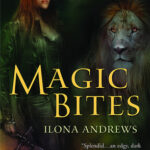
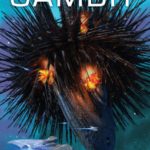
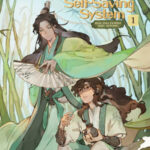
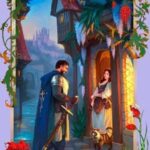
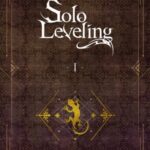
There are many honourable mentions that I didn’t have space for in the top ten — like Jo Walton’s Among Others, which felt in my early 20s like a portrait of me in some ways, and My Real Children, which Lisa has always loved especially — but I trust this has painted a picture of a joyously bookish relationship over the years!
I’ll leave you with this little tradition of ours to be jealous over: our Valentine’s agreement, renewed each year, is that Lisa will buy me one book of my choice each month, whenever my whim strikes. The reciprocal agreement (no complaints about daytime naps) hasn’t been activated in a long time, and probably needs to be replaced with the ability to send me to get fancy coffee twice a month or something like that — but aren’t I lucky?!
Tags: books, Top Ten Tuesday
Posted February 3, 2026 by Nicky in General / 50 Comments
This week’s Top Ten Tuesday prompt is about interesting cover typography… which is a tricky topic for me, because I’m a very non-visual person! That said, it also sounds fun, so let’s see what I can do.
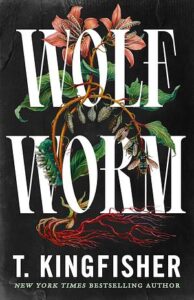
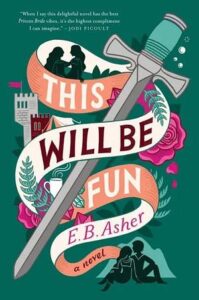
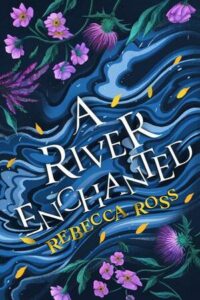
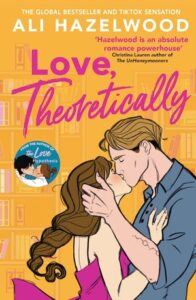
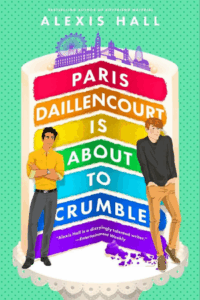
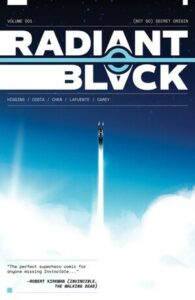
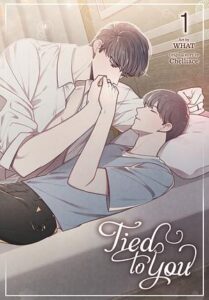
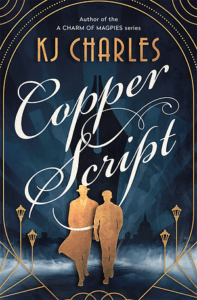
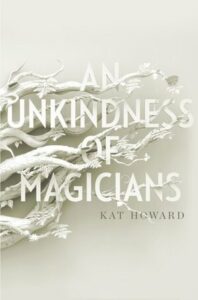
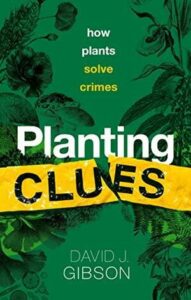
I make no promises about the quality of the books, because I’ve only read four of them and only loved two. All the same, these covers jumped out at me as doing interesting things with the typography (like following the layers of the cake, the echoed upside-down A, the letters of Tied to You being tied together, the broken crime-scene tape).
For my money, the coolest is An Unkindness of Magicians, though: it’s a pretty plain font, but somehow it’s making that pale-on-pale look work, and the branches are growing into the letters… a lot of the time bright colours draw the eye, but this cover draws the eye by eschewing colour, including in the title text.
I’m very curious to see what others have unearthed, and what other people feel looks cool!
ETA: See also my post today about the importance of book covers!
Tags: books, Top Ten Tuesday
Posted January 27, 2026 by Nicky in General / 58 Comments
This week’s Top Ten Tuesday prompt is about bookish discoveries made in 2025! I don’t have any general things like bookshops or book clubs to share, so I’ll go with new-to-me authors in 2025, though it’s heavy on authors where I only know a single work/series (and sometimes they don’t have others).
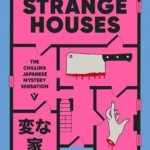
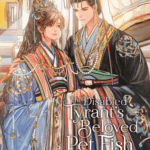
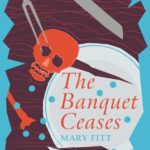
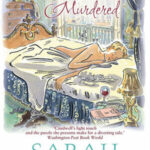
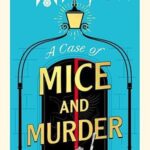
- Uketsu. I really enjoyed both Strange Pictures and Strange Houses, especially the latter, and I’m looking forward to the upcoming Strange Buildings. They’re such weird stories, and if you want to piece together the mysteries for yourself you have to really stare at the included images. (This is perhaps why I liked Strange Houses most: I found it easier to come up with my own theories and spot what I was meant to see, so I got to participate a bit more.)
- Xue Shan Fei Hu. Me and my wife both got super into The Disabled Tyrant’s Beloved Pet Fish at the same time, which was fun — reading the books at the same pace, chatting about plot developments, etc. It’s a silly story (though it does include some political intrigue) and very cute, and I’m sure I’ll reread it. I’d give other books by this author a shot too.
- Mary Fitt. I didn’t know anything about this queer Wales-based classic mystery writer, but in 2025 I came across The Banquet Ceases and loved it. I later read Clues to Christabel as well, which I found compelling but somewhat less enjoyable. I’m definitely eager to read more of her work, and there’s a lot of it (if not all?) on Kobo Plus, which is convenient.
- Sarah Caudwell. I started seeing people talk about Thus Was Adonis Murdered a lot and gave way to curiosity, ending up fully on the bandwagon despite not being sure whether the humour would suit me, or whether a crime novel based around a bunch of lawyers would be fun. I haven’t read the fourth book, which I’ve been warned isn’t as fun, but I really loved the first three. They’re witty and clever and full of character, and I’m sure I’ll reread them at some point.
- Sally Smith. Another legal-based mystery, in the same year?! Shockingly, yes. I was initially put off by the main character, Gabriel Ward, who seems to be kind of stuffy — but it didn’t take long before I was won over. I loved both A Case of Mice and Murder and A Case of Life and Limb (which I requested to review because I’d unexpectedly loved the first book so much), and I’m so impatient for book three.
- Yatsuki Wakatsu. This is the author of The Other World’s Books Depend on the Bean Counter, which I read in both the original light novel format and (as far as it exists) the manga adaptation. I’d definitely give more books by this author a shot; the light novels kept me chirpy and fascinated during a high-stress, high-anxiety time as my final exams approached, we were moving house, etc, etc. I’ve actually been rereading the manga due to the new volume coming out, and it confirmed to me how much fun the series is.
- Rinteku. I don’t know if Rinteku’s written any other manga, but I came across Love in the Palm of His Hand and really fell in love with how it tries to portray the multiple ways the deaf protagonist communicates. It was really interesting to see how Rinteku chose to represent sign language in a static medium (showing several hand positions in the same frame, for instance). It’s also a really sweet story, even if I don’t 100% love the art. I’d definitely try something else by them.
- Itaru Kinoshita. I absolutely fell for Dinosaur Sanctuary last year, and though I haven’t got through my backlog of written-but-not-yet-posted reviews to start posting the reviews yet, I can’t wait to share them. It’s basically “what if we found living dinosaurs, put them in zoos, and really had to take care of them?” The dinosaurs are studied, given medical care, encouraged to breed, need enrichment — and the public needs to be engaged with too. I really loved how rooted it is in what we know about dinosaurs and some interesting but plausible extrapolations. The series has a research consultant so it can be as accurate as possible! It’s wholesome and fun, and I also learned new things.
- Chugong. That’s the author of the original Solo Leveling light novels! I actually read the manhwa first, which I loved, but I’m knee-deep in the light novels now as well and really loving it. I find it weirdly relaxing that though the stakes are ultimately really high (the survival of all humans), the main character is so ridiculously overpowered (and so rarely at a loss) that you know somehow everything is going to be fine.
- singNsong. This has really been a year of me reading a lot more media from Japan, China and Korea, as you can tell from the rest of this list! So it’s only fitting to end with Omniscient Reader’s Viewpoint, which filtered slowly into my awareness through an online friend loving it and a few mentions in the game Tiny Bookshop, where it’s one of the books you can recommend to the bookshop patrons. I’m enjoying both the light novels and the manhwa, and can’t wait for more.
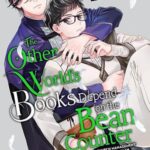


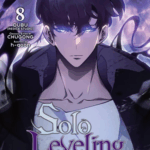
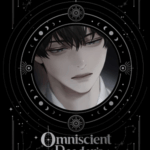
I was actually surprised by the dominance of Japanese, Chinese and Korean works here, but that’s a fairly accurate picture of my reading, to be fair. There are a few runners-up whose books I enjoyed, like Molly O’Neill’s Greenteeth, Rachel Harrison’s Cackle, Julie Leong’s The Teller of Small Fortunes, Chelliace’s Tied to You… so it wasn’t easy to choose just ten to discuss. It was a good year for reading!
Definitely eager to see everyone else’s picks.
Tags: books, Top Ten Tuesday
Posted January 20, 2026 by Nicky in General / 44 Comments
This week’s Top Ten Tuesday prompt is about goals for 2026 — bookish or not. I’ll keep things mostly bookish (that’s what you’re all here for, after all, and I have so many bookish goals, always!)… so without further ado, let’s take a look.
- Read (or not!) according to my whim. It’s easy to get caught up in reading for a reading challenge, or because I have a review copy, or because a book’s due back at the library. And sometimes that’s fine and fun, but whenever it’s not fun, I stop. Or try to: I can’t say I’m perfect yet at this!
- There’s no such thing as a guilty pleasure. It’s kinda sad when I see people talking about “guilty pleasures”, or deriding their reading as “trashy” (though sometimes I think people mean “trashy” in a fun, positive way, I think that’s often still caught up in popular disdain for certain genres or tropes). If it’s fun for me, then it’s worthwhile. It doesn’t need to be any deeper than that.
- There’s no such thing as cheating. Reading novellas, reading manga, reading children’s books, rereading a favourite, all of it is valid toward stuff like reading goals, most challenges as long as it meets any prompts, etc.
- I won’t do book-buying bans (or book-borrowing bans, or bans on requesting ARCs, etc). I have limits (discussed below) to help ensure that I’m not just stacking up books I don’t plan to read… but if I really want some new books, I’m not going to make that a guilty feeling. It’s a joy to support authors, to have good stuff to read, to get a nice stack of books and devour them. Provided I have the budget, I’ll make it work.
- I won’t buy from Amazon if at all possible. In general, but especially books: that’s what indie bookshops and Bookshop.org are for. Sometimes they don’t have something in stock, and there can be relatively few places to turn in that case, but for the majority of what I read there are plentiful options to avoid supporting Amazon.
- I want to have no more than 20 books at a time bought in 2026 that I haven’t started. This sometimes results in me having a few books on the go at once that I turn out not to be in the mood for, but broadly speaking it’s been really great at helping me read review books on time, start books when I feel like it instead of waiting for “the right time”, etc. I worried I would find it overly restrictive, but I did this last year and really liked the nudge to read books while they’re relevant/exciting/exactly what I’m interested in, because I just got them.
- I want to start all the books I bought in 2025. As mentioned above, I had the same rule last year (a limit of 20 books not started), but at Christmas the total rocketed up, ahaha. So I currently have 32 books from 2025 that I haven’t started yet. I’m hoping to get them all started (at least) by June, always provided that’s the way my whim takes me.
- I want to read at least 100 books from my backlog (counting 2025’s books). I did great last year at weeding out my backlog — sometimes by just recognising I didn’t want to read something after all, but also by reading 100 books that had been on my backlog since the end of 2024 or longer. I’d built up quite a backlog for a bunch of reasons, and it was great to explore my shelves more and push myself to poke around in the depths of my Kobo, get to books I meant to review when they came out, etc. I’d like to keep going!
- I want to read 400 books again this year… or even more? I managed to read 400 books last year and the year before, while still studying on top of full-time work. I don’t have any new course or class lined up, so maybe I have more time for reading? Maybe not, if other priorities crop up, but I still figure that 400 books is a reasonable goal to start with.
- Any goal can be changed if it’s doing more harm than good. I set reading goals as a way to remind myself that I want reading to be a priority, because reading makes me happy, because talking about books on my blog makes me happy, etc, but if it’s not making me happy then it needs to change. There was a point last year when I dropped my goal to 300, gradually increased it back to 350… and then I eventually ended on 400 exactly. Flexibility is important.
And that’s it! The main goal, of course, is to keep on having fun with it. If I’m not, then for me there’s no point.
How about you?
Tags: books, Top Ten Tuesday
Posted January 13, 2026 by Nicky in General / 36 Comments
This week’s Top Ten Tuesday theme is about the books we’re looking forward to in the first half of 2026. I’m not always great at keeping an eye on this kind of thing, but it turns out I do have some books I really, really want.
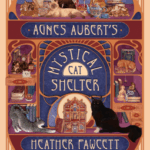
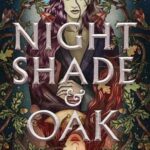

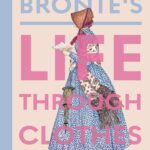
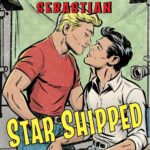
- Agnes Aubert’s Mystical Cat Shelter, by Heather Fawcett. I actually have an ARC of this one, so I have to get round to it as soon as possible! I’ve enjoyed Fawcett’s other books, though this one basically had me at “mystical cat shelter”, to be fair.
- Nightshade & Oak, by Molly O’Neill. I really liked Greenteeth, so I’m quite hopeful about this one too, especially since it sounds like it has similar roots. I just got a copy of this from Hachette yesterday morning, so I’m going to dig in soon!
- Strange Buildings, by Uketsu. I enjoyed Strange Pictures and especially Strange Houses, so I expect to have fun with this one as well. Maybe I’d better see if I can wishlist it at the library, because Strange Houses was in high demand when it came out.
- Charlotte Brontë’s Life Through Clothes, by Eleanor Houghton. I’m not interested in fashion or clothes per se, but more in what clothes and fashion can tell us about the people who wore them, the times when they were fashionable, etc. I like some of the Brontës’ work, and especially Jane Eyre, so I’m interested both as someone mildly interested in the Brontës and as someone interested in the history of clothes.
- Star Shipped, by Cat Sebastian. I love Sebastian’s work (and feel it seems to keep on getting better), and I’m very amused by the setting of the two characters being stars in a sci-fi show. Looking forward to this!
- Apparently, Sir Cameron Needs to Die, by Greer Stothers. I know comparatively little about this one, but it sounds like a fun romance.
- The Lost Book of Lancelot, by John Glynn. It was high time someone played with ‘The Book of Galehaut’ (there was a retelling that was almost a translation, which I don’t count), because Lancelot and Galehaut’s relationship in the Vulgate Cycle is heckin’ intense, and it’s quite the addition to the Arthurian legends… but sadly ignored. I’m not sure how close a retelling this is going to be, but I look forward to seeing what the author does with it, all the same.
- Solo Leveling (manhwa), vol 14, by Dubu etc. This contains side stories for Solo Leveling, so I’m verryyyyy curious. As people on my blog know, I’ve got very into both the manhwa and the novels, though I’m close to finished with the novels, so it’s nice to have something new to look forward to from the manhwa.
- After the Disabled God of War Became My Concubine, vol 1, by Li Gou Hua. This danmei isn’t from one of the authors I’ve read before, so I don’t know a lot about what to expect, but I like the idea of the premise (professor ends up transmigrating to the past and discovering that a weird thesis he read is true, and he’s living it). It’s a familiar sort of theme for light novels and I’m enjoying the many permutations of it immensely.
- Omniscient Reader’s Viewpoint (novel), vol 3, by singNsong. I’m reading both the manhwa and the novel, and I am very excited to dig in and get to the next bit in the novel. By that time I think I’ll have read just past it in the manhwa, but it’s always interesting to see how manhwa adapts the stories and sometimes places slightly different emphases. And of course, sometimes there are slightly different translations or notes on translations too.
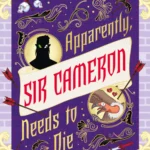
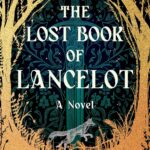
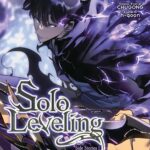

Quite a weird mix, I’m sure, and also no doubt I’ve missed loads of stuff I’d be interested in. Looking forward to seeing everyone’s lists!
Tags: books, Top Ten Tuesday
Posted January 6, 2026 by Nicky in Reviews / 28 Comments
The official topic is “Best Books I Read in 2025”, but I’m being a bit more precise and saying this is a list of my favourite books — because some of them are not objectively as good as others, but I had more fun with them and they did more to shape my year, regardless of quality. Besides, markers of quality are pretty subjective anyway, so this phrasing just pedantically reveals what I think I’d really be doing anyway.
I did a favourite 12 books of 2025 over on Litsy, picking out my favourite book for each month for #12BooksOf2025, but this list is a bit different because some of my favourite books came from the same months.
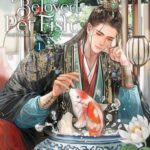
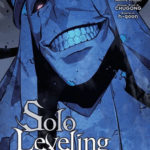

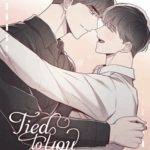

- The Disabled Tyrant’s Beloved Pet Fish, by Xue Shan Fei Hu. These books were so ridiculous and so cute: what if a guy gets transmigrated into a novel he’s been reading… as the tyrant’s pet fish? And then has to mitigate the tyrant’s character and turn him into a good emperor? Their relationship ends up genuinely lovely, as Li Yu completes quests that allow him to turn into a human form. But I wasn’t kidding about it being silly too, since Li Yu ends up giving birth to four fishy babies (and later a human baby). It doesn’t really go into the mechanics of that, fortunately. Anyway, I can see myself rereading these books in future years, and eagerly consuming any adaptations that come out, so this has to get a place in my top ten.
- Solo Leveling, by Chugong (+ the manhwa adaptation by Dubu). I’m bundling both the novels and the manhwa into this one slot, because why not? I wasn’t sure what I’d think of this series, but I ended up loving it and reading it in both formats. Jinwoo is ridiculously overpowered, and that’s the fun of it: you know he’s safe, and the majority of the people around him are going to be safe. But how is he going to do it? What neat monsters is he going to face? What’s behind it all? I had enormous fun reading the manhwa, which is what I started with, and have now dug into the light novels as well.
- Dinosaur Sanctuary, by Itaru Kinoshita. This manga series is so much fun. Basically, what if dinosaurs were resurrected and kept in zoos, and handled by keepers who have to become expert in their healthcare, nutrition and enrichment needs? It follows a new keeper who’s learning how to handle the various dinos, and the series had a dinosaur consultant keeping the science pretty accurate, with neat fact files between chapters explaining more about the relevant science. I definitely know kids who’d enjoy this, but as a forever-lover of dinosaurs, so did I. It’s relatively low stakes, and a lot of fun.
- Tied to You, by WHAT (adapting a novel by Chelliace). This manhwa ends up being both creepy and romantic: what if someone didn’t trust the concept of fated partners, and was willing to do anything to manipulate his fated partner into being sure to stay with him? It’s not even clear that Jigeon needs to act the way he does, but he’s so determined not to let Wooseo go, no matter what. In the end, he has to put his cards on the table and show Wooseo exactly what he’s been up to in order for them to bond fully, and Wooseo does choose him eyes-open, but it still ends up having a twisted sort of feel. It’s lived in my head rent-free since I read it, despite me knowing nothing about the series and just encountering it randomly on Library Pass/Comics Plus.
- Everything is Tuberculosis, by John Green. This is my new go-to as a recommendation for people curious about tuberculosis, which is my “favourite” infectious disease, and still a really important cause of mortality worldwide. I wrote my BSc dissertation on tuberculosis and studied it again during my MSc: it’s still so important, and people know so tragically little about it (sometimes believing it’s no longer a disease of importance, when in reality it’s the #1 cause of death from infectious disease worldwide). Green’s books is well-written and excellent for a general audience, and even I learned a couple of things (mostly about the experience of being a TB patient: I wasn’t aware that the treatment process makes you really hungry, which is a huge problem for people who don’t have a lot of food available).
- You Should Be So Lucky, by Cat Sebastian. This romance is really good. The process of the two of them falling for each other feels so realistic, their connection makes sense, the setting and the other characters are really good… I expected to enjoy it, because I like Cat Sebastian’s work and I liked the other book in this series (We Could Be So Good), but it really had a stranglehold on me for a while there. I swear her work gets better with each book.
- A Case of Mice and Murder, by Sally Smith. I loved this and the second book in the series, A Case of Life and Limb. The setting (the Inner Temple, one of the Inns of Court in London) didn’t necessarily sound fascinating, and the main character sounded like he might be kind of stuffy… and then he won me over completely with his gentle courtesy and considered kindnesses. The setting is surprisingly cool, as well: not a setting I’d thought much about, but shaped by unique traditions and history. I can’t wait for more books in this series.
- The Teller of Small Fortunes, by Julie Leong. This was an early favourite for me. It steers away from world-changing stuff for the most part, instead following someone who wants to use her powers quietly, travel safely, and avoid world politics — despite having the power to foretell more or less anything. I loved the way it played with the idea of seeing these small fortunes and how even those could be important, and I really liked the cast. I’m looking forward to The Keeper of Small Magics.
- Hemlock & Silver, by T. Kingfisher. This has been a year for reading T. Kingfisher’s work for me, but Hemlock & Silver is really lodged in my head because it felt like such a wild (and fun) take on the Snow White story. The mirror monsters were particularly inspired — there’s often a touch of horror to Kingfisher’s fantasy, and they were definitely a freaky and fascinating inclusion. Honourable mention to Clockwork Boys, though, which I also absolutely inhaled… and the Saint of Steel books too, really. I liked that this one stood alone, though.
- A Drop of Corruption, by Robert Jackson Bennett. I love that this is an earnest attempt to write a classic mystery story (very Holmesian) in a fantasy world. We’re given a lot of detail about the world to help us draw our own conclusions, and there’s so much of it to sink your teeth into. I found this as compulsive as the first book, and it has some satisfying weirdness too.
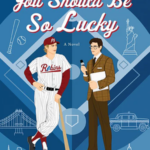

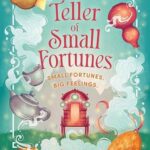
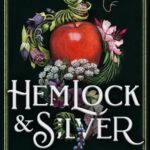
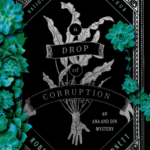
If I started getting further into honourable mentions than I have already we’d be here all night, but hopefully that’s a nice taster! Curious to see what other people’s picks have been.
Tags: books, Top Ten Tuesday
Posted December 30, 2025 by Nicky in General / 15 Comments
This week’s Top Ten Tuesday theme is all about new books added to your bookshelf. Obviously I talk about those in my Stacking the Shelves post, but I thought I’d highlight some of the ones I’m most excited to get round to — some of which I didn’t showcase yet in my last post, since I split my Christmas haul into two posts!
Without further ado and in no special order, let’s go…

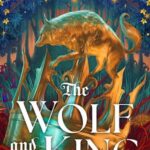
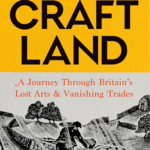
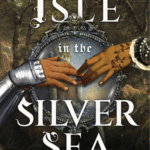
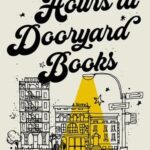
- Solo Leveling (light novel), by Chugong. I’ve actually got all eight volumes, between Christmas presents and using my trade-in credit at Bookshop.org. I’ve started on these already (I’m onto volume three today), and I’m tearing through them. I know the story from reading the manhwa, but it’s fun to see it fleshed out a bit and presented in a different format.
- The Wolf and His King, by Finn Longman. This is a retelling of the lai ‘Bisclaveret’, by Marie de France. I studied it during my first undergraduate degree, so I’m really excited to see someone playing with it. Maybe I’ll even try to email the lecturer who introduced me to Marie de France’s work and ask if he’s checked it out! It sounds like it should be great fun for fantasy fans in general, as well.
- Craft Land: In Search of Lost Crafts and Disappearing Trades, by James Fox. I happened across this and was curious about it, and then saw someone else’s review on Litsy, so I ended up adding it to my wishlist, and someone got me it for Christmas. I’m pretty eager to dig in, it looks like fun.
- The Isle in the Silver Sea, by Tasha Suri. This is getting great reviews, and promises a Sapphic Arthurian story? I’m in, in, in. Funnily enough, I bought this for my sister for Christmas, while my wife bought it for me. We even unwrapped them at pretty much the same time.
- After Hours at Dooryard Books, by Cat Sebastian. I love Cat Sebastian’s work in general, and seeing the enthusiasm of several friends about this one makes me think I should jump in sooner rather than later.
- Like: A History of te World’s Most Hated (and Misunderstood) Word, by Megan C. Reynolds. Linguistics isn’t necessarily my thing, but I’ve enjoyed books like Because Internet, and this one sounds interesting. I try not to be prescriptivist about it, even while I find some of our verbal tics pretty lazy.
- Enshittification: Why Everything Suddenly Got Worse and What To Do About It, by Cory Doctorow. It’s been a while since I read anything by Doctorow, but this seems like an important one right now, with enshittification hitting so many of the apps and services people use.
- The Keeper of Magical Things, by Julie Leong. I loved the other book in this world — it was one of my highest rated books of last year — so I’m eager to get to this soon as well. I hope it’s magical in just the same small sort of ways…
- Brigands & Breadknives, by Travis Baldree. I could’ve got a review copy, but I knew I wouldn’t get round to it in time. Now I can hopefully dig in guilt-free when the right moment arrives! I’ve loved the other two in this series, though Legends & Lattes was the favourite.
- Cat Tales: a History, by Jerry D. Moore. Digging into the history of the relationships between cats and humans sounds like a lot of fun. It was a bit of an impulse add to my wishlist, but I’m glad I got a copy, I’m really curious now!
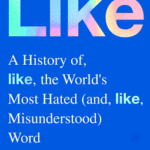
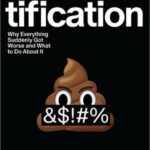
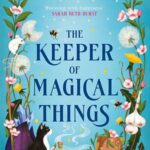
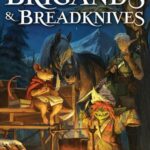
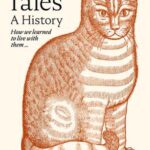
That’s just a taster, of course — I was really spoiled this Christmas. Looking forward to see what other people have been snagging for their shelves!
Tags: books, Top Ten Tuesday
Posted December 16, 2025 by Nicky in General / 14 Comments
It’s been a minute since I participated in Top Ten Tuesday, again, but I always like the TBR ones! So here’s my winter TBR… which is not really themed, because I don’t go for that much.
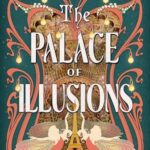

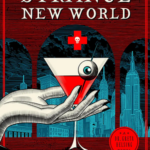
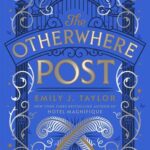

- The Palace of Illusions, by Rowenna Miller. This is kinda seasonal, since it’s Nutcracker-inspired, and I’ve got started on it already. I’m not very far into it, but I’m very curious about the magic, and how it all relates to the Nutcracker.
- We Could Be Heroes, by PJ Ellis. A romance between a guy playing a superhero who sounds like the equivalent of Superman or Captain America… and a drag queen? Sounds fun, I’m curious! Again, this is on my December TBR and I’ve actually started it already, but I’ve only read two chapters. I think the guy who plays the superhero is about to show up at the drag show, and I presume sparks will shortly fly for some kind of meet-cute.
- Strange New World, by Vivian Shaw. This is the latest in a series I love, so I’m keen to jump in, and it’s part of two reading challenges I’m in. I didn’t expect a sequel given that the last book was so apocalyptic, so I’m quite curious where it will go.
- The Otherwhere Post, by Emily J. Taylor. I know very little about this one, but picked it up to review for Postcrossing’s blog since it involves magical mail. I did start reading it, and the multiple worlds idea — and the postal workers who are the only ones who can slip between them — is pretty intriguing.
- After Hours at Dooryard Books, by Cat Sebastian. I’ve heard a couple of glowing recommendations for this, and someone just bought me a copy, so it’s quite high on my list! I generally love Cat Sebastian’s romances and find them very satisfying anyway, so the praise is just the cherry on the cake there.
- Spinosaur Tales: The Biology and Ecology of the Spinosaurs, by David Hone and Mark P. Witton. Yeah, I know, this is an abrupt switch in gear, but y’all know me! I love my non-fiction too, and I really liked David Hone’s The Future of Dinosaurs and The Tyrannosaur Chronicles. His work is very readable, but thorough; I know very little about spinosaurs, so I’m extra interested to get into it, especially since I’ve been reading the Dinosaur Sanctuary manga. Who knows when that might feature some spinosaurs?!
- Solo Leveling, by Chugong. I read the manhwa adaptation earlier this year, so I’m curious about the original! I’m told there are some differences in the story, which sounds intriguing, and also I usually find novels a bit easier to follow than visual media. Again, just got gifted a copy of the first volume, so it’s an excellent time.
- Omniscient Reader’s Viewpoint, by singNsong. I’ve heard great things about this series, so I want to dig in and give it a go. I got gifted this as well, so I want to dig in ASAP.
- The Wife Comes First, by Lv Ye Qian He. The first volume is out as of today, and I’m curious about this one from the summary — it sounds like an interesting idea for a romance, with some fun court politicking, without being a many-volumes long investment like some other danmei I’m interested in. I’m not sure if I’ll get it for Christmas, since it’s not in stock currently in most places and Bookshop.org says a few days for delivery (which often means they don’t actually have copies yet)… but maybe I’ll get it for myself after Christmas if not.
- Thrice Married to a Salted Fish, by Bi Ka Bi. Another danmei I’m curious about! I read the preview, and I’m dying to know what’s going on, I must be honest. Again, I don’t have a copy yet, but might get it for myself if Santa doesn’t bring it.
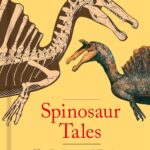


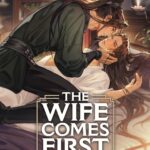
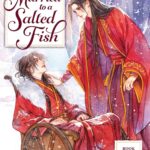
Curious to browse other people’s lists when I get the chance! Hope everyone’s having a good December so far.
Tags: books, Top Ten Tuesday
Posted November 11, 2025 by Nicky in General / 16 Comments
This week’s Top Ten Tuesday theme is about books you’ve read (or want to read) that are outside your comfort zone. I read so widely/apparently randomly that it’s kinda hard to define what my comfort zone looks like, especially since each book holds the potential to expand it, but let’s see what I can come up with!

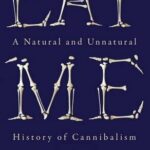
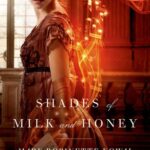

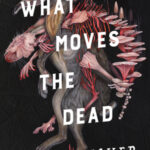
- Feed, by Mira Grant. Granted, I adore this one now, but I didn’t always. When I first read it, it made me feel reaaaally on edge and uncomfortable, because horror isn’t my thing and the idea of everyone being infected with a cocktail of viruses that could turn them into zombies at any time was… yeah, definitely dancing around on my anxieties.
- Eat Me: A Natural and Unnatural History of Cannibalism, by Bill Schutt. I just finished this one, but I think it counts; it’s not really a topic I’m interested in per se, definitely not for prurient interest, but I decided to give it a go because it wasn’t a subject I’m very familiar with, and new knowledge is always of interest to me. I need to write up my review of this one, because I just finished it last night!
- Shades of Milk and Honey, by Mary Robinette Kowal. By heavy contrast to the previous two, ahaha, this is a Regency-ish Austenesque fantasy. It is actually pretty squarely in my comfort zone now, but when I read it I tended to be allergic to anything that smacked of Jane Austen, wasn’t a romance fan, and in general wasn’t best positioned to enjoy it. I didn’t rate it very highly the first time, but I revisited and enjoyed it more, and particularly started enjoying Glamour in Glass, the second book.
- The Scum Villain’s Self-Saving System, by Mo Xiang Tong Xiu. This was my first danmei, and I really wasn’t sure whether I was going to like it. I remember reading it in a hotel room in Bath during a long weekend getaway with my wife, and just constantly making WTF noises at it — all I’d really understood going into the story was that the two main characters were canonically terrible at sex, and that some people really really loved the books. I don’t know why I picked them over Grandmaster of Demonic Cultivation or Heaven Official’s Blessing, which might’ve been less weird introductions to danmei… but hey, it ultimately worked. I finished the first book and decided that I did really need to know where it went. That said, the series still kinda sits on the edge of my comfort zone for a couple of reasons: the student/teacher relationship (which I feel is carefully managed and balanced in context, but is still on edge of what I’m okay with) and the fact that it’s a satire of a genre I don’t really know (the cultivation novel).
- What Moves The Dead, by T. Kingfisher. I am a wimp about horror. I’ve read a surprising amount of it for someone who isn’t a horror fan, one way or another, but it’s still not my comfy genre. What Moves The Dead was pretty brilliant, but it also freaked me out, dancing around the edge of my anxieties about contamination and disease.
- Spillover, by David Quammen. I hardly need to write an explanation of this anymore for regulars here, who won’t be surprised to see it in the list! Back when I read Spillover, I was deliberately forcing myself to be curious about something that terrified me: infectious disease. A popular science book seemed like a reasonably controlled way to do it. It wasn’t comfy reading for me, though it helped that spillover events don’t generally happen in UK back gardens, and that Quammen is very measured and careful in assessing risks. Now, of course, I have an MSc in infectious diseases (or I will once my graduation ceremony is held); Quammen really started something for me. It was also part of my initial attempts to read more non-fiction (which now constitutes about 30% of what I read), so, yeah, a great success all round.
- Crypt of the Moon Spider, by Nathan Ballingrud. This was an impulse read from the library, one I knew wouldn’t be a comfortable one for me given the premise. It ultimately turned out more uncomfortable for me than I’d expected with some vivid imagery (let’s just say it’s not one for the arachnophobic, and leave it there), and I didn’t love it.
- Yellowface, by Rebecca F. Kuang. This ended up being a five-star read for me, but I tend toward genre reads rather than this more literary sort of choice, so I really wasn’t sure how I’d find it. It felt like watching a trainwreck, with a main character both despicable and pitiable, and it was fascinating.
- The Gabriel Hounds, by Mary Stewart. I remember reading this as one of the first Mary Stewart books I read — I can’t remember if it was the first, that might’ve been Touch Not The Cat, but I definitely wasn’t sure whether it was going to be my thing. It was definitely before I started reading romance in general, at any rate. And I had a lot of fun!
- Solo Leveling (manhwa adaptation), by Dubu. I wasn’t sure whether Solo Leveling would be my thing: it sounded a bit dark, and very battle focused. Honestly, I’m not sure why I did give it a shot — but I ended up really sucked in, and quickly acquired the whole series. Now I definitely wouldn’t say no to trying the light novel, too.
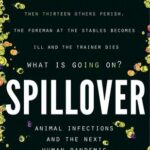
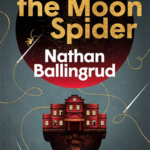
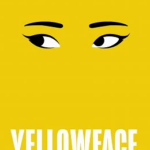


So there we go, I did manage to come up with ten! Very curious to see what others’ picks are.
Tags: books, Top Ten Tuesday
















































































